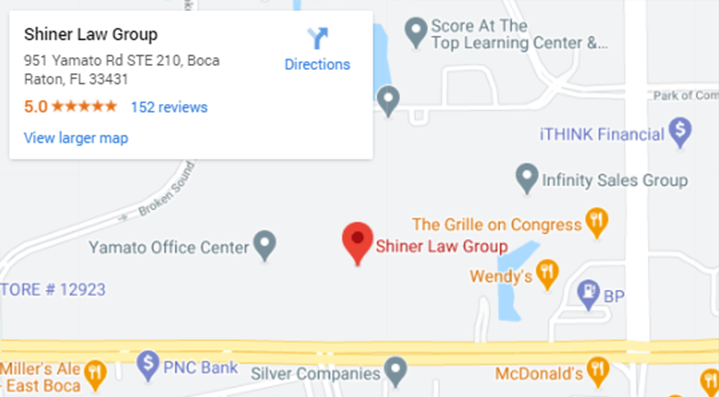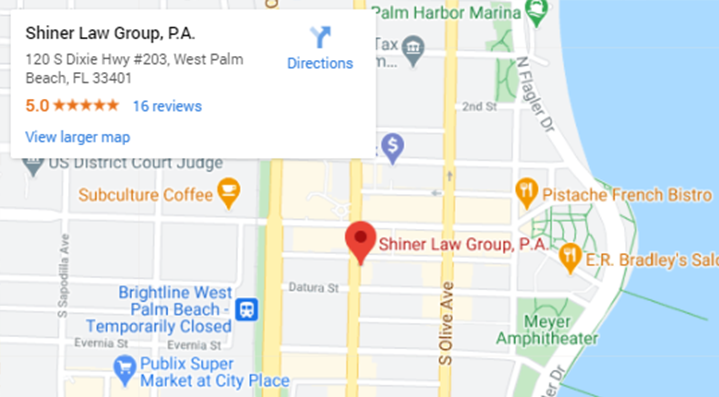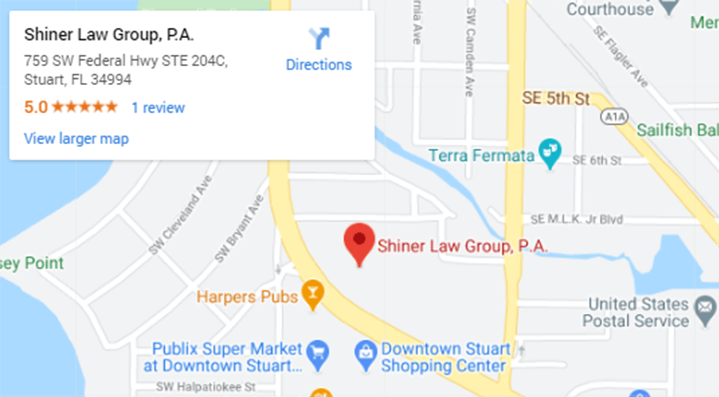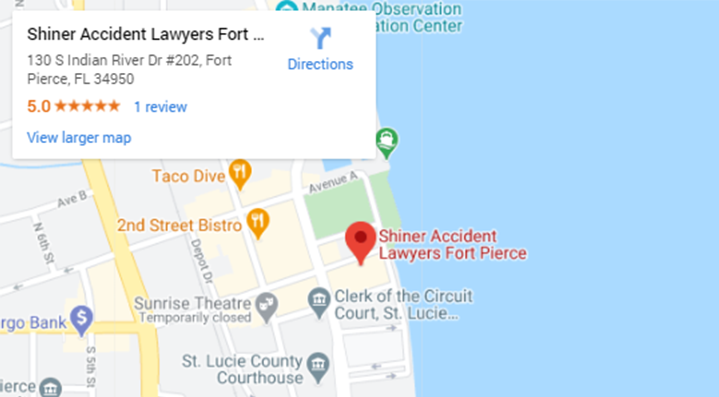Cryptocurrency – What is it?
We are sure you have heard the term “Cryptocurrency” being tossed around for the past few years – and even more recently in the news – mostly because of Bitcoin, which is one of many cryptocurrencies, and has been trading over $50,000, in fact on March 13, 2021, Bitcoin hit a high of $59,690 (and on a few occasions has exceeded $60,000.00).
The lawyers at Shiner Law Group have been receiving calls from many past and new clients wondering what is going on with the cryptocurrency market and asking if they should invest. While we are not investment managers nor investment advisors, and we do not provide investment advice, we try very hard to understand current market trends and provide informative information to our clients so they may have a better understanding of these trends and possibly what to avoid. Due to our legal work dealing with security fraud matters, we are constantly reviewing current market conditions and trends, new types of securities being introduced as well as the various trading platforms.
Due to the renewed interest in Bitcoin and other cryptocurrencies (including Ethereum), we wanted to take a few minutes to detail what we see in the cryptocurrency market, the potential benefits of investing in cryptocurrencies, the potential pitfalls, what we should all look out for in regards to fraud and what recourse do we have if we have been victims of fraud.
US currency history
Prior to 1933 the US dollar was backed by the gold standard, which was a monetary system in which a unit of the US Dollar was based on a fixed quantity of gold. For example, $1.00 US dollar was pegged at 23.22 grains of pure gold. However, since 1933 the US Dollar has been backed by the “Full Faith and Credit” of the US government. Currently, the US National debt (the national debt is the total debt or unpaid borrowed funds carried by the US government) is approximately 28 trillion US Dollars or close to $85,000 per US citizen (as of March 17, 2021). That is a significant amount of money that the Federal government owes, and it begs the question of how likely it will be that the debt diminishes overtime as the Federal government pays down the debt or if the debt continues to grow with no end in sight. If it is the latter, what is the full faith and credit of the US government truly worth?
One of the many questions we receive relate to whether “cryptocurrencies” are “real currency” or “real money.” At this time, we cannot ascertain if that is an accurate statement, though it does appear to be overvalued for a currency not backed by any physical item or backed by the “full faith and credit” of a foreign government or ongoing concern. With the valuation being so high, compared to a year earlier, talk of a bubble is usually on the forefront of everyone’s minds, another topic is if Bitcoin is part of a Ponzi scheme – since its value is not tied to anything but what people are willing to pay for it.
A Ponzi Scheme is a form of “fraud” whereby “new investments” in the scheme are paid out to the existing investors, with little or no legitimate earnings, this scheme requires a constant influx of new investors to satisfy the existing investors looking for returns or a payout. There have been many examples of the Ponzi Schemes in the history of the investment community, two of the more famous recent Ponzi Scheme are Bernie Madoff Saga and the Alan Stanford CD Bank Fraud.
Cryptocurrency, on the other hand, is a digital or virtual currency and backed by blockchain technology which allows each coin (or “token”) to be registered and tracked in a digital ledger, by a unique identifier, but it is not backed by any government or bank. Currently with no federal regulation, buyers should be aware of potential issues when it comes to owning and investing in cryptocurrencies. One of the main benefits of using cryptocurrency for specific transactions is the anonymity, typically there is no record of who owns a specific cryptocurrency, how much they own and no trail besides the unique cryptocurrency identifier in the digital ledger, additionally the ease of getting a large amount of money from point “a” to point “b.” Another advantage is that your holdings are located in a digital wallet which you can kept on your phone or a thumb drive and only you have access to it, which means no one else, including the government can know what type of currency you own, nor how much, however if you lose access to the digital wallet or forget your password, there is no way for you to recover your digital assets and no way to prove what you once owned.
The Shiner Law Group came up with six examples of potential issues that we have seen with this new currency and the technology which surrounds it. Some of the potential concerns we have identified are as follows:
- Creating a new Cryptocurrency and selling it to unsuspecting investors. As an example, a new cryptocurrency called Confido started to issue “coins or tokens” only to have the founders disappear with over $375,000 of investor money. Another more famous incident involved a startup called Centra which conned over $30 million of investors’ money by selling a worthless coin to investors.
- Cryptocurrency exchange cases, the cryptocurrency exchanges are similar to a wall street securities exchange, which helps facilitate the orderly transactions of the particular security in the marketplace, in a cryptocurrency exchange, rather than securities being traded, various types of Cryptocurrencies are traded or exchanged between the buy and the seller. An investor decides to buy XYZ Crypto Tokens, deposits money on an exchange, buys the “tokens” and they are held within an account at the exchange, only to discover later the transaction never occurred, you really don’t own any “tokens”, your investment dollars have disappeared and the exchange was just smoke and mirrors. An example of this occurred in late 2017 when South Korean authorities uncovered a fraudulent cryptocurrency exchange called BitKRK named after the South Korean Securities Exchange “Korea Exchange (“KRK”). The exchange marketed itself as a branch of the real exchange, enticing traders by promising the transactions were regulated and backed by KRK, obviously it was not. Millions were lost, and according to reports, many were defrauded.
- Cryptocurrency wallets really do not exist. When you buy a particular Cryptocurrency, it is a virtual coin which cannot be delivered to your doorstep, it’s not like a bar of gold or silver that you can lock in your safe, its digital. And, in order to keep track of your coins they are held in a virtual wallet. Since the advent of these wallets scammers have created false wallets which take your information down and then turn around and steal your logon information and steal your actual tokens. (Since the currency is virtual, there is no record of who owns what nor how many you own, the only way to prove ownership is to have the actual tokens kept and maintained in a virtual wallet, if you lose the wallet you lose the tokens).
- One such scam occurred recently and was identified in February 2021. Although the fake digital wallet was up for only a few days there is no telling how many people were, according to reports, defrauded. The con was simple, developers of this digital wallet uploaded the app to the apple store, it described itself as a digital app and it appeared as if it was associated with a well-known cryptocurrency company called Trezor, however the problem is that Trezor does not have an app. This fake app stole users Trezor’s passphrases and private keys (what is used to log into your digital wallet), once that information is received, the “owners” of the app were able to log into the Trezor platform and steal via transferring the cryptocurrencies held in the wallets. Read more about this incident here.
- The Ponzi Scheme, an oldie but still one of the most prominent schemes when it comes to investment fraud. In this particular scheme you are recruited to join a new, developing cryptocurrency and buy (aka invest) in tokens, you are then encouraged to have others “buy” in, the new money is used to pay others who earlier bought coins and are looking to cash out. In 2015 Airbit Club started to market itself to the public based on a promise of guaranteed profits, it sold itself as a cryptocurrency mining and trading company.
Dave Portnoy from Barstool Sports recently called Cryptocurrencies “one big Ponzi scheme” others, such as Lending Tree Chief Economist Tendayi Kapfidze agree, however one investor, Elon Musk disagrees and invested $1.5 billion of Telsa’s earnings into Bitcoin.
- Another tried and true technique is a phishing scam where by scammers attempt to get your user name and password, log into your account and transfer your “coins” to their account, since there is no registration, there is no way to find out who has your coins, one such scam involved a twitter post whereby the tweet that appeared to be from Elan Musk and promised that if you sent your Bitcoins to him he would send back double, the gentleman from Germany allegedly lost $560,000 USD.
- The investment pump and dump scam, starts with a group who buy a coin based cryptocurrency at a low price, talk it up via online message boards, text, email or even calls, watch as others join in on the investment and wait until the coins jump in price, once that happens they dump their coins and you are stuck owning at a high price. In one case, Antivirus software business mogul John McAfee was indicted in a $13 Million pump and dump scheme.
As you can see these are typical investment scams that our firm sees every day in the securities market that are geared towards the cryptocurrency market. The downside of these type of scams is that since a wallet is anonymous no one knows who really owns a coin at any particular time, also since there is no certificate of ownership or authenticity it’s difficult to determine the real true owners, which is one of the reasons many like and use cryptocurrency, however this often works against the actual owner. When Coins are traded it doesn’t say Dave Smith traded 5 xyz coins to Jane Smith, it usually gives a coin identifier
Bitcoin, the most famous of all the Cryptocurrencies, was invented in 2008, with the first coin being “mined” in 2009. The inventor or inventors of Bitcoin are not known, it has a limited supply of coins (only 21 million bitcoins can be mined) and can never add any more, hence why each coin is priced over $50,000, the typical economics 101 lesson of supply and demand.
There are plenty of other types of cryptocurrencies, some are similar to Bitcoin in that there is nothing that is backing the currency up, some are backed by actual gold and some by real-estate. Each type of investment has the ability to become part of a scam, we recommend to all who are interested to take each investment slowly, do the research on the product, the company, the backers behind the product as well as the news stories, if it is from a blogger based in a far off land, you may want to stay away, if it is by someone more reputable like money.com or the Wall Street Journal, more research may be prudent.
However, with all types of investing there is risk and reward and there are never guarantees in investing. Please remember that Shiner law Group and our employees or agents will not, and cannot, give any financial advice. It is up to you to do the proper research and determine what type of investment is best for you. In addition, the contents and statements herein are our opinions only; we recommend that you perform your own research when determining any investment and all cases are reviewed on the specific facts, no two cases are ever the same. If you or a loved one have been a victim of an investment fraud, Ponzi scheme, or financial harm from an investment including cryptocurrencies, call one of our experienced attorneys today at 561-777-7700.









